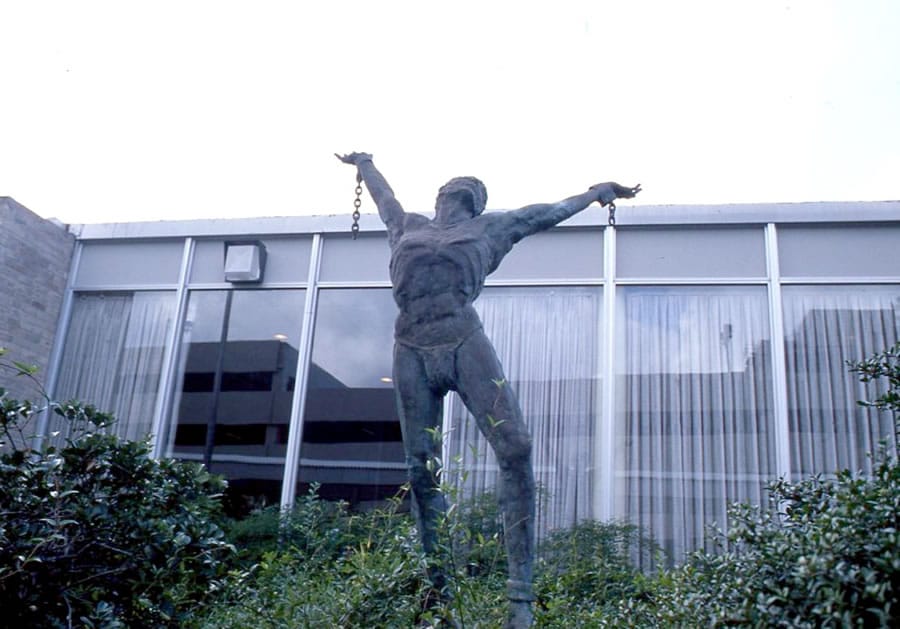
Analysis of Percy Shelley’s “Prometheus Unbound” Essay
“Prometheus Unbound” is a drama, written on the basis of a Greek myth about Prometheus, who stole fire for people from Zeus, and for that was chained to a rock. This myth has served as groundwork of Shelley’s story about grandiose picture of the struggle of people against tyranny in the world. In the preface to the drama the poet wrote about the difference between his image of Prometheus and Prometheus in Aeschylus great tragedy. If in the trilogy by Aeschylus the hero at the end reconciled with Zeus, the Prometheus of Shelley is shown as a die-hard rebel. In contrast to Aeschylus, the oppression is not meaningful as a curse, but as the price paid people for their own fear, which made them to give preference to non-freedom.
Prometheus is the one who did not give up freedom, who according to the poet “represents the image of the highest moral and spiritual perfection.”
Monarch of Gods and D?mons, and all Spirits
But One, who throng those bright and rolling worlds
Which Thou and I alone of living things
Behold with sleepless eyes! regard this Earth
Made multitudinous with thy slaves, whom thou
Requitest for knee-worship, prayer, and praise,
And toil, and hecatombs of broken hearts,
With fear and self-contempt and barren hope.
Whilst me, who am thy foe, eyeless in hate,
Hast thou made reign and triumph, to thy scorn,
O’er mine own misery and thy vain revenge.
Rejecting the omnipotence of Zeus, Prometheus revolts against humanity. (Act I, scene 1)
Seized by a thirst for revenge for his weaknesses and sins, the hero himself must go through a spiritual catharsis to be healed from the hatred. Only then will come true his dream of a community of people who no longer know the self-centeredness, submission, oppression and desire for power. The human race is waiting for eternal peace and happiness, but it requires that people recognized love as their supreme deity, stopped a spiritual slavery, causing bitterness and contempt in titanium who stole fire for them.
Rebellion of Prometheus, who has true strength of spirit that allowed him to withstand all the tests sent down by Zeus (an eagle tearing chained to a rock hero, furies with iron wings), is, however, the tragic and doomed character. The only consolation for titanium are his memories of his beloved – beautiful Asia, who is waiting for him in India and dreams of reuniting with loved ones.
Together with Pantea Asia goes to Demogorgon – “a powerful darkness”. Asia asks Demogorgon about who created the world, thoughts, feelings, crime, hatred and all the life on earth, and on all questions Demogorgon answers the same: an autocratic God.
Asia: Whom calledst thou God?
Demogorgon: I spoke but as ye speak,
For Jove is the supreme of living things.
Feeling hope for exemption from the tyrannical rule of Jupiter, Asia asked when the fetters of Prometheus fall. However, Demogorgon answers unclear:
Asia: So much I asked before, and my heart gave
The response thou hast given; and of such truths
Each to itself must be the oracle.
One more demand; and do thou answer me
As mine own soul would answer, did it know
That which I ask. Prometheus shall arise
Henceforth the sun of this rejoicing world:
When shall the destined hour arrive?
Demogorgon: Behold! (Act II, scene 4)
Thus, Prometheus is driven only by the thought of confrontation, which justifies both violence and evil, as there is no other way to influence the coward human nature. When Prometheus overthrow a tyrant, he becomes partly like him in his efforts to radically change the order of things. Only after the titanium becomes aware of his own human nature and is ready to take on his mighty shoulders all the sufferings, he acquires features of a true hero.
Facing one failure after another in his attempts of creating an utopia, Prometheus only in the concluding acts of the drama understands that violence is unable to change the world created by despotism, in the beautiful kingdom of justice and freedom. Creating this kingdom, in which bars and nations disappear, and every person becomes a full individual, endowed with creative aspirations, demands moral heroism. Prometheus is an example of hero that will remain attractive for ever.
Complex symbolic images of the Shelley’s drama, when the author is personifying nature, love, beauty, reveal the poet’s belief in the inevitability of the triumph of justice, coming after the overthrow of the tyrant Jupiter, the release of Prometheus and his meeting with Asia, an allegorical embodiment of love. The drama ends with a grand picture of the victory of beauty and freedom throughout the world.

